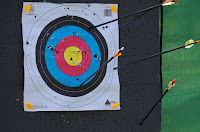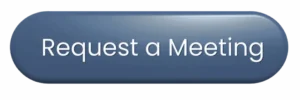Fun With Augmented Reality in Search

Thanks to where I live and the amount of time that I’ve spent hiking, camping, fly fishing I have slightly more experience seeing wildlife like bears and moose than the average person. My kids often ask me to tell a story about seeing a bear, a moose, or other animal. Unfortunately, when they ask for […]
Two Image-based Search Challenges to Use With Your Students

One of my favorite ways to reinforce the use of good search strategies to students is to show interesting pictures and have students try to make a long list of questions about what they see. Then I let the students try to find the answers to those questions. When they get stuck, I intervene to […]
Three Types of Web Search – And a Strategy for Conquering the Difficult One

In A Taxonomy of Web Search Andrei Broder, a noted scholar in the field of web search, classified web search into three categories. Those being navigational, informational, and transactional. When Broder was writing in 2002 navigational referred to a quest to immediately reach a particular website. Today, thanks to services like Google Maps, navigational search […]
Have Students Make Lists Before Starting Web Search

This is an excerpt from a book that I have been working on for the last fifteen months. I’m getting close to finishing it. Our students have become accustomed to entering a search into Google as soon as they are confronted by a question to which they don’t have an answer on the tips of […]
The Most Important Search Skills and Attitudes According to SearchReSearch Readers

Dan Russell’s Search ReSearch blog is my go-to resource for learning new strategies and for ideas on teaching search. His search challenge blog posts always provide a new way to think about search. At the end of May he conducted a survey of his readers. The survey was to determine what readers of Search ReSearch […]
Vocabulary Lists Could Help Your Students Conduct Better Searches

As I mentioned in a video posted earlier today, I have been doing some research about how students search. Specifically, they’re search habits and how those habits influence outcome of their searches. It’s quite fascinating even if much of what I’m reading is rather dry data crunching. One of the research reports that I read […]
How Search Works – An Illustrated Explanation

Google search is a part of our students’ daily lives (most of them have never lived in world without Google), but often they don’t know how the search results displayed before them got there. How Search Works is an animated graphic that reveals the basics of how websites are sorted, ranked, and presented to you in your […]
Change the Dialect to Change Your Search Results

One of the points that I always make in my Search Strategies webinar is the importance of thinking about how other people describe the topic you’re researching. Here are two examples of how that has had an effect on my travel planning. Going to Australia A couple of years ago I gave the opening keynote […]
Looking for Errors – A Lesson in Website Accuracy

In Saturday’s week-in-review I mentioned that NBC’s webpage about Olympic archery contains quite a few errors. I’ve been thinking about that a lot as I’ve watched the Olympic archery matches this week. Last night, it occurred to me that NBC probably has other niche sports pages containing errors. My guess is that we all have […]
How to Use Choosito’s Reading Level-indexed Search Tool for Free

On Wednesday I published a post about Choosito that spurred a lot of questions in email and comments on Facebook including some not-so-pleasant comments that I deleted. Choosito is a search engine that offers a reading level index for results. You have to register on Choosito even if you just want to use their free […]

